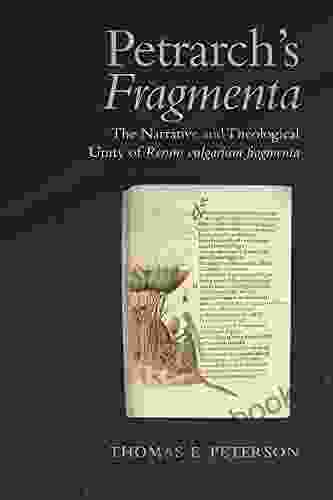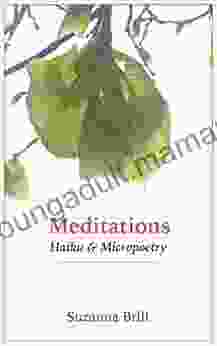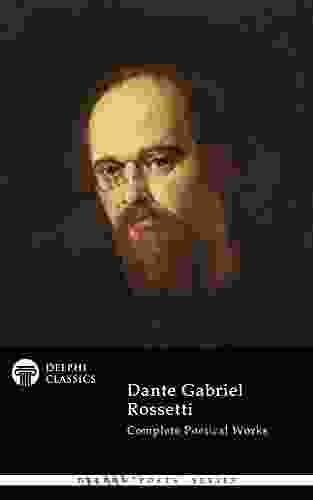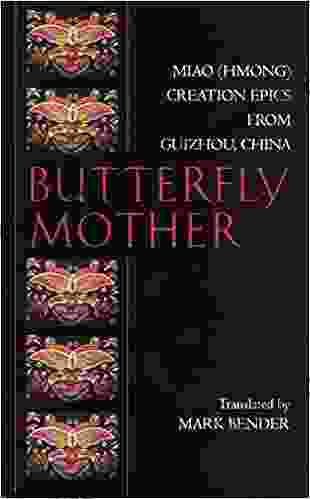The Narrative and Theological Unity of Gerard Manley Hopkins' Rerum Vulgarium Fragmenta Toronto

5 out of 5
| Language | : | English |
| File size | : | 2239 KB |
| Text-to-Speech | : | Enabled |
| Screen Reader | : | Supported |
| Enhanced typesetting | : | Enabled |
| Print length | : | 342 pages |
Gerard Manley Hopkins' Rerum Vulgarium Fragmenta Toronto is a collection of poems that reveals the poet's deep engagement with the natural world, the human condition, and the divine. First published in 1959, the Toronto manuscript contains 175 poems, including some of Hopkins' most famous works, such as "The Windhover" and "The Wreck of the Deutschland." This article will explore the narrative and theological unity of Rerum Vulgarium Fragmenta Toronto, demonstrating how Hopkins weaves together themes of nature, suffering, and redemption to create a cohesive and meaningful poetic work.
Nature as Revelation
Nature plays a central role in Rerum Vulgarium Fragmenta Toronto, serving as a source of both beauty and revelation. In poems such as "The Sea and the Skylark" and "Pied Beauty," Hopkins celebrates the intricate beauty and diversity of the natural world. He sees nature as a manifestation of God's creative power and a reflection of the divine order. Through nature, humans can glimpse the transcendent reality that lies beyond the material world.
For Hopkins, nature is not merely a collection of objects to be observed and described. It is a living, dynamic force that interacts with the human soul. In poems such as "Spring" and "Inversnaid," Hopkins explores the transformative power of nature, describing how it can soothe sorrow, inspire joy, and lead to spiritual awakening.
Suffering and Redemption
While Hopkins finds beauty and revelation in nature, he also acknowledges the presence of suffering and evil in the world. Poems such as "The Wreck of the Deutschland" and "Carrion Comfort" grapple with the problem of pain and the search for meaning in the face of adversity. Hopkins does not offer easy answers to these questions, but he suggests that suffering can be a path to redemption.
In "The Wreck of the Deutschland," Hopkins contemplates the tragic sinking of a ship carrying German nuns to America. Despite the horrors of the shipwreck, Hopkins finds hope in the faith and sacrifice of the nuns. He argues that their suffering can be seen as a form of martyrdom, a way of participating in the redemptive work of Christ.
In "Carrion Comfort," Hopkins confronts the reality of death and decay. He describes the rotting carcass of a horse, but instead of dwelling on its gruesome appearance, he focuses on the beauty and resilience of the natural world. He sees in the carrion a symbol of hope, a reminder that even in the midst of suffering and death, there is still life and beauty to be found.
The Poetic Imagination
Hopkins' exploration of nature, suffering, and redemption is inseparable from his unique poetic imagination. He was a master of language, and he used his poetic gifts to create vivid and memorable images. His poems are full of sensory details, alliteration, assonance, and other poetic devices that enhance their beauty and impact.
In poems such as "The Windhover" and "God's Grandeur," Hopkins celebrates the power of the poetic imagination to capture the beauty and wonder of the world. He sees the poet as a kind of prophet, a voice that speaks for the voiceless and reveals the hidden truths of existence.
Hopkins' poetic imagination is also evident in his use of sprung rhythm. This unconventional meter gives his poems a unique energy and vitality, reflecting the dynamic and unpredictable nature of the world he describes.
Rerum Vulgarium Fragmenta Toronto is a complex and multifaceted work that explores the deepest questions of human existence. Through his unique poetic imagination, Hopkins weaves together themes of nature, suffering, and redemption to create a cohesive and meaningful poetic work. His poems offer a glimpse of the beauty and wonder of the world, while also acknowledging the presence of pain and evil. Ultimately, Hopkins' poetry points to the redemptive power of nature, the imagination, and the divine.
Additional Notes
- The title Rerum Vulgarium Fragmenta is Latin for "Fragments of Common Things." This title reflects Hopkins' interest in finding the extraordinary in the ordinary, the sacred in the secular.
- The Toronto manuscript is the most complete and authoritative version of Rerum Vulgarium Fragmenta. It includes poems that Hopkins revised and polished throughout his life, as well as poems that were only discovered after his death.
- Hopkins was a Jesuit priest, and his faith had a profound influence on his poetry. His poems are full of religious imagery and themes, but they also explore universal human experiences such as love, loss, and the search for meaning.
5 out of 5
| Language | : | English |
| File size | : | 2239 KB |
| Text-to-Speech | : | Enabled |
| Screen Reader | : | Supported |
| Enhanced typesetting | : | Enabled |
| Print length | : | 342 pages |
Do you want to contribute by writing guest posts on this blog?
Please contact us and send us a resume of previous articles that you have written.
 Top Book
Top Book Novel
Novel Fiction
Fiction Nonfiction
Nonfiction Literature
Literature Paperback
Paperback Hardcover
Hardcover E-book
E-book Audiobook
Audiobook Bestseller
Bestseller Classic
Classic Mystery
Mystery Thriller
Thriller Romance
Romance Fantasy
Fantasy Science Fiction
Science Fiction Biography
Biography Memoir
Memoir Autobiography
Autobiography Poetry
Poetry Drama
Drama Historical Fiction
Historical Fiction Self-help
Self-help Young Adult
Young Adult Childrens Books
Childrens Books Graphic Novel
Graphic Novel Anthology
Anthology Series
Series Encyclopedia
Encyclopedia Reference
Reference Guidebook
Guidebook Textbook
Textbook Workbook
Workbook Journal
Journal Diary
Diary Manuscript
Manuscript Folio
Folio Pulp Fiction
Pulp Fiction Short Stories
Short Stories Fairy Tales
Fairy Tales Fables
Fables Mythology
Mythology Philosophy
Philosophy Religion
Religion Spirituality
Spirituality Essays
Essays Critique
Critique Commentary
Commentary Glossary
Glossary Bibliography
Bibliography Index
Index Table of Contents
Table of Contents Preface
Preface Introduction
Introduction Foreword
Foreword Afterword
Afterword Appendices
Appendices Annotations
Annotations Footnotes
Footnotes Epilogue
Epilogue Prologue
Prologue Vanessa Rodriguez Coppola
Vanessa Rodriguez Coppola Raymond Boyd Dunn
Raymond Boyd Dunn Peter Robinson
Peter Robinson Almaris Alonso Claudio
Almaris Alonso Claudio Lianne Moriarty
Lianne Moriarty Anthea Peries
Anthea Peries John Ellsworth
John Ellsworth Basil Bunting
Basil Bunting Jeanne Marie Laskas
Jeanne Marie Laskas John C Waugh
John C Waugh Lin Poyer
Lin Poyer Vishal Mondkar
Vishal Mondkar William J Bennett
William J Bennett Jim Aparo
Jim Aparo Jeff Anderson
Jeff Anderson David E Mcnabb
David E Mcnabb Simona Iacob
Simona Iacob Michael Mcfaul
Michael Mcfaul Jerome C Harste
Jerome C Harste Joel Solomon
Joel Solomon
Light bulbAdvertise smarter! Our strategic ad space ensures maximum exposure. Reserve your spot today!

 Jermaine PowellGardening for Kids With No Garden: A Comprehensive Guide for Indoor and...
Jermaine PowellGardening for Kids With No Garden: A Comprehensive Guide for Indoor and... William WordsworthFollow ·17.9k
William WordsworthFollow ·17.9k Langston HughesFollow ·14.7k
Langston HughesFollow ·14.7k W. Somerset MaughamFollow ·4.4k
W. Somerset MaughamFollow ·4.4k Manuel ButlerFollow ·2.4k
Manuel ButlerFollow ·2.4k Kyle PowellFollow ·2.4k
Kyle PowellFollow ·2.4k Edmund HayesFollow ·5.4k
Edmund HayesFollow ·5.4k Hugh BellFollow ·9.1k
Hugh BellFollow ·9.1k Darrell PowellFollow ·12.7k
Darrell PowellFollow ·12.7k

 Yukio Mishima
Yukio MishimaUnveiling the Zimmermann Telegram: A Pivotal Document in...
The Zimmermann Telegram, a diplomatic...
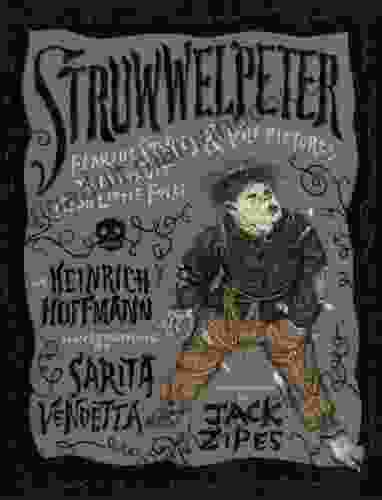
 George Martin
George MartinFearful Stories and Vile Pictures to Instruct Good Little...
In the annals of children's literature, few...

 Grant Hayes
Grant HayesJessica the Viscount Wallflower: A Tale of Transformation...
In the opulent ballrooms and glittering...

 Jerome Blair
Jerome BlairThe Economics of the Global Defence Industry: A...
The global...
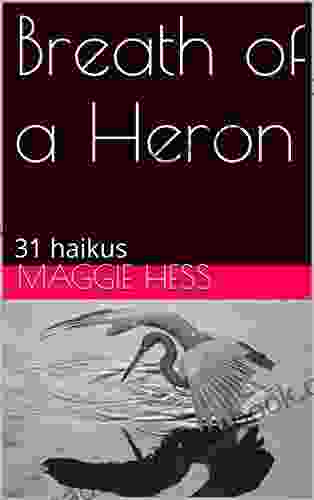
 Blake Kennedy
Blake KennedyBreath of Heron - A Window into the Poetic Depths of...
In the realm of...
5 out of 5
| Language | : | English |
| File size | : | 2239 KB |
| Text-to-Speech | : | Enabled |
| Screen Reader | : | Supported |
| Enhanced typesetting | : | Enabled |
| Print length | : | 342 pages |


